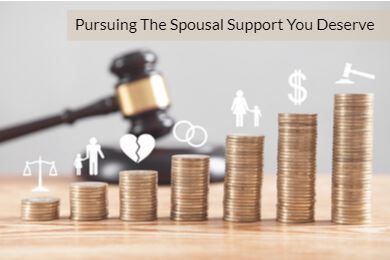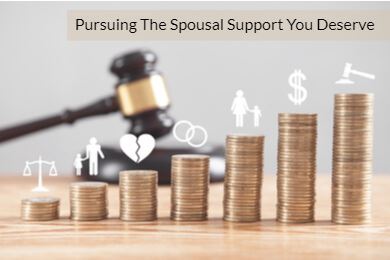 When most people think about divorce, they only consider the personal and emotional consequences of the split. While divorce can certainly be a heartbreaking experience, it can also have profound financial implications. If you are getting divorced in Texas, you may wonder if you are entitled to alimony or spousal support. Spousal support refers to financial assistance that one spouse pays the other after the marriage has ended. The laws regulating spousal support in Texas are complex and differ significantly from laws in other states. To learn more, contact an experienced Texas divorce lawyer qualified to handle spousal support concerns.
When most people think about divorce, they only consider the personal and emotional consequences of the split. While divorce can certainly be a heartbreaking experience, it can also have profound financial implications. If you are getting divorced in Texas, you may wonder if you are entitled to alimony or spousal support. Spousal support refers to financial assistance that one spouse pays the other after the marriage has ended. The laws regulating spousal support in Texas are complex and differ significantly from laws in other states. To learn more, contact an experienced Texas divorce lawyer qualified to handle spousal support concerns.
How to Get Spousal Support in Texas
There are three main ways that a divorcing spouse may receive spousal support. The first is through a valid marital agreement such as a prenuptial agreement or postnuptial agreement. The second way that you may receive spousal support is by negotiating a spousal support arrangement with your spouse. Only a small percentage of divorce and family law cases go to trial. More often, cases are resolved outside of the courtroom through settlement negotiations between the parties’ respective lawyers. Your lawyer may be able to help you and your spouse reach an agreement about the amount and duration of spousal support along with your agreements about property division, child custody, and other divorce concerns.
Lastly, the court may award spousal support. However, Texas courts only award spousal support if certain criteria are met. In order to get spousal support, you will need to demonstrate that the divorce will place a significant financial burden on you and that you will not be able to pay your bills or meet other financial obligations without support. You will also need to show that at least one of the following are true:
You or your child suffered abuse or domestic violence at the hands of your spouse in the past two years.
You have a disability that prevents you from being financially self-supporting.
The marriage has lasted 10 years or longer, you cannot meet your needs without support, and you are either disabled, the parent of a disabled child, or you do not have the earning capacity to be self-supporting.
You are a sponsored immigrant.
When deciding whether or not to award spousal maintenance, the court will consider factors like each spouse’s physical and mental health, the length of the marriage, and the employability of the spouse seeking support.
Contact a Plano Spousal Support Lawyer
If you are getting divorced and you are interested in pursuing spousal support or spousal maintenance, contact a Collin County divorce attorney for help. At the Law Office of Brian Bagley, we understand that divorce can represent a serious financial burden on a lesser-earning spouse. We can help you pursue the financial support you need. Call (972) 843-7158 for a free, confidential consultation.
Source:
https://statutes.capitol.texas.gov/Docs/FA/htm/FA.8.htm

